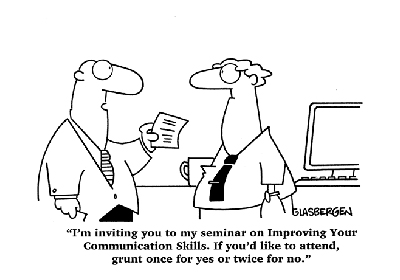Communication is the key to good leadership – this is a topic we visit frequently in our blog posts at Leaders Lab. It’s vital as a leader to communicate your company’s vision. Without this, how can you expect your senior managers and your colleagues to perform to the best of their ability? Without this, leadership conversations simply boil down to just giving instructions and orders.
There are many types of communication for leaders to master and some will be easier than others depending on your personality. Here are just a few:
- good listening
- public speaking
- coaching
- chairing meetings
- participating in meetings
- appraisals
To speak or not to speak?
“It is better to keep your mouth closed and let people think you are a fool than to open it and remove all doubt.” Mark Twain
This doesn’t work for leaders. Playing safe to avoid looking foolish makes sure that people don’t know what your purpose is. Those who feel left in the dark don’t work well.
Mastering your public speaking skills is an opportunity for a leader. You can convince many at once. You only need to prepare for one occasion. It’s all over at one event.
But of course you can also disappoint many at once. You can leave them thinking “What a missed opportunity to dispel our anxieties, show us what plans they have, excite us about the future!”
Are you too modest? Don’t be
Did you know that Alexander Fleming discovered penicillin but evidently was such a bad public speaker (or too modest) that he did not inspire others to help him? It was not until 10 years later that the significant research was done.
Don’t get hung up on the manager-leader distinction here. If people look up to you, you are a leader. If you show people a new way, you are leading. If a child can be a leader – and we all know that some are even in primary school – then a leader is anyone who inspires others to action.
Here are some useful public speaking tips for those who are, or who aspire to be, a leader:
- Before you start preparing, get into the zone. See yourself as a leader. It is your job to inspire people to believe what you say, and the pictures you paint, and you can only do this if you see yourself as leading the way.
- Be sure what your purpose is. Do you want to call people to action? Inspire others to join you? Convince with your arguments? Decide on your purpose before you start.
- Structure your content into 3 sections. Audiences will only remember 3 things so don’t make your content a rag-bag of too much information.
- Know your audience. How knowledgeable are they? How interested in the topic? How old, how young? Thinking about them in this way will start you thinking about them as individuals and how to engage them. You’ll speak better.
- Prepare. The ad-lib speaker with no notes can be a nightmare. A confident ad-libber often doesn’t know where or when to stop. They overrun and bore the audience. Or they can be hugely entertaining but nothing of substance is remembered.
- Before you start to speak, you must be in the zone (re-read tip 1). Make time to prepare your head and harness your energy before you step on to the stage.
Thanks to Alison Haill from OPC Oxford for inspiration for this post.
